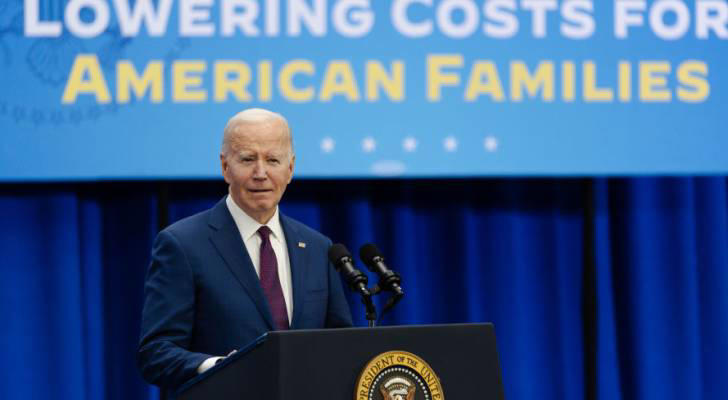President Biden, having secured the Democratic nomination for this year’s election, has unveiled a substantial $7.3 trillion budget proposal for fiscal year 2025. This proposal includes significant tax increases on the wealthy and corporations, alongside increased spending on social programs and border security.
However, the proposal has faced considerable opposition from Republicans, who have vowed to reduce the national deficit at a faster rate with their own budget plan. The Republican plan entails cutting spending in areas such as green energy subsidies and student loan forgiveness, while also advocating for tax reductions.
House Speaker Mike Johnson criticized President Biden’s budget proposal, stating, “The price tag of President Biden’s proposed budget is yet another glaring reminder of this administration’s insatiable appetite for reckless spending and the Democrats’ disregard for fiscal responsibility. Biden’s budget doesn’t just miss the mark – it is a roadmap to accelerate America’s decline.”
The divide between the parties underscores the ongoing debate over fiscal policy and government spending priorities. While Democrats prioritize increased investment in social programs and border security, Republicans advocate for reducing the deficit through spending cuts and tax reductions. The outcome of this debate will likely shape the direction of economic policy in the coming years.
President Biden’s budget proposal represents a significant policy shift towards addressing social inequalities and supporting middle-class Americans during a period of persistent inflation. Despite criticism from some quarters, the White House asserts that the budget contains provisions aimed at easing the financial burden on middle and low-income individuals, with a projected tax reduction totaling $765 billion over the next decade. Among the proposed measures are innovative initiatives like tax credits for first-time homebuyers and expanded assistance programs facilitating access to affordable health insurance.
Furthermore, the budget emphasizes the importance of bolstering key social safety nets, allocating $80 billion to restore funding for the Internal Revenue Service (IRS) to enhance tax enforcement efforts. Additionally, the proposal aims to shore up the financial stability of essential programs like Medicare and Social Security, while simultaneously taking steps to mitigate the escalating costs of prescription drugs. Notably, the budget also includes provisions for establishing a comprehensive national paid family and medical leave program, a crucial step towards supporting working families.
However, alongside these domestic priorities, the budget also addresses national security concerns by allocating $850 billion to the Defense Department. Additionally, it reaffirms commitments to provide ongoing aid to strategic allies like Ukraine and Israel, as well as investing in increased border security measures to address pressing immigration challenges.
Despite the ambitious agenda outlined in the budget proposal, concerns have been raised regarding its fiscal sustainability. Critics, such as Chris Edwards of the Cato Institute, question the viability of the proposed measures, estimating that the budget could potentially add a staggering $17 trillion to the national debt over the next decade. Such apprehensions underscore the importance of carefully evaluating the funding mechanisms outlined in the budget to ensure long-term fiscal responsibility.
In response to these concerns, the Biden administration has outlined a strategy to offset the budgetary costs by implementing targeted tax increases, particularly targeting high-income individuals and corporations. This includes raising the corporate tax rate to 28%, reversing a reduction implemented during the previous administration. Moreover, individuals earning over $400,000 annually and married couples earning over $450,000 would see their top income tax rate restored to 39.6%, while individuals with substantial wealth would face increased tax obligations.
Additionally, the administration aims to curtail tax avoidance strategies employed by the wealthy and large corporations, proposing measures to deny tax deductions for excessive employee compensation, quadruple the tax rate on stock buybacks, and eliminate certain tax subsidies. These initiatives underscore the administration’s commitment to ensuring that all individuals and corporations contribute their fair share towards funding essential government programs and initiatives.
Overall, President Biden’s budget proposal reflects a comprehensive and ambitious agenda aimed at addressing pressing social, economic, and national security challenges facing the nation. However, the success of these proposals will depend on the ability to garner bipartisan support and effectively navigate the complex fiscal landscape to achieve meaningful and sustainable outcomes for all Americans.
